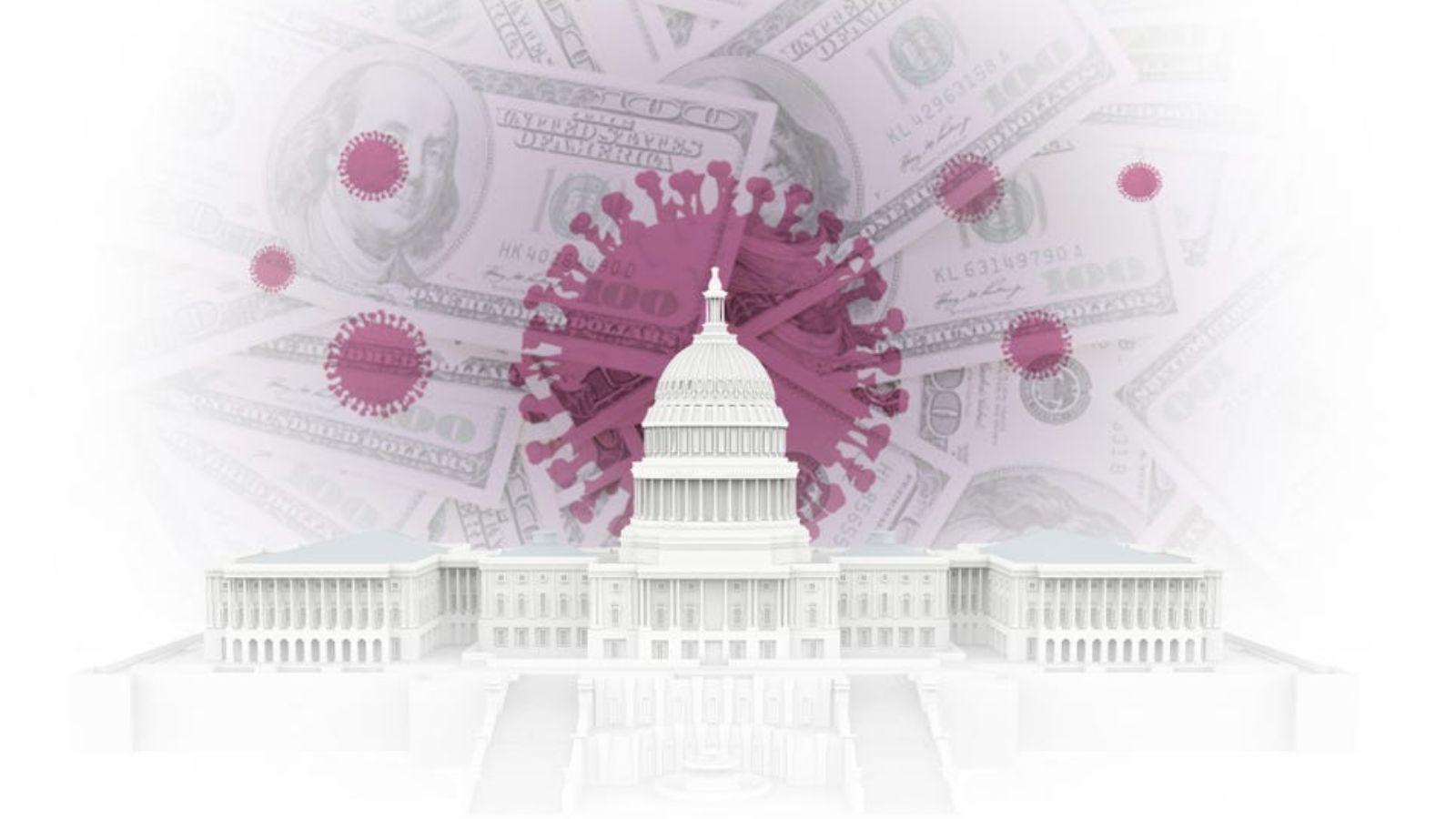The coronavirus pandemic is not just a global health crisis but an economic calamity as well. Travel has been severely restricted. Thousands of restaurants, bars and other small businesses across the country have been ordered to close. Workers face mass layoffs, with little end in sight.
To stem the economic fallout, Congress has approved two emergency packages. A deal on a third much larger measure has been reached that includes direct payments to Americans, far-reaching financial help for small businesses and a lifeline to airlines considered crucial to the nation’s recovery.
The centerpiece would be one-time checks of $1,200 or more to individuals, a jolt of household capital that lawmakers hope will boost consumer confidence and give the tumbling stock market a reason for optimism.
What has happened:
Feb. 24: The Trump administration proposes $2.5 billion to fight the coronavirus. The proposal includes money taken from existing programs, including funding to combat the Ebola crisis in 2015. Congress rejects that as far too small.
March 4: Congress passes $8.3 billion which includes:
Roughly $500 million to allow Medicare providers to administer telehealth services to assist elderly patients unable to leave their homes.
$2.2 billion for federal, state, and local public health agencies to prevent, prepare for and respond to the coronavirus.
$1 billion in loan subsidies to be made available to help small businesses, small agricultural cooperatives, small aquaculture producers, and nonprofit organizations.
More than $3 billion for research and development of vaccines, therapeutics and diagnostics to prevent or treat the effects of coronavirus
March 18: Congress passes Families First Coronavirus Response Act which is designed to cover:
Full cost of Covid-19 testing for all Americans, including those uninsured.
Two weeks of paid sick leave for workers at companies with 500 or fewer employees, or about 87 million Americans combined.
More than $1 billion to maintain federal nutrition assistance, such as subsidized lunches for low-income children, food banks, and meals for eligible seniors.
$1 billion to help states process and cover unemployment insurance claims.
What’s happening now:
Congressional leaders have struck a broad compromise on a third stimulus package that could reach $2 trillion and include relief for major industries such as airlines, small businesses that have seen revenues dwindle or disappear, and workers facing layoffs and loss of health coverage. The language is still being worked out by congressional leaders and the White House but lawmakers say it will include the following:
Families: Individuals earning less than $75,000 per year will get $1,200 checks under the stimulus agreement. Married couples earning less than $150,000 will get $2,400 and children will be worth another $500 each under the deal. The exact timing of those checks is unclear but they’re expected to be processed in the next two weeks.
Small Business: The package includes $367 billion for small retailers. Loans for small business could be forgiven depending on a number of factors, including whether they keep workers on the payroll.
Airlines: U.S. passenger air carriers, considered crucial to the nation’s recovery, would have access to a $25 billion loan pool while cargo carriers collectively would be eligible for $4 billion in loans. That’s half of what the Republicans were asking for.
Other large industries: The package includes $500 billion for loans to larger industries, but does not include a bailout for cruise lines.
Hospitals: Health care systems and hospitals, which are bracing fora surge of cases that already have exceeded 50,000 nationwide will get $100 billion
Workers: On average, the federal government will pay the workers full salary for four months if they’ve been laid off as a result of the coronavirus crisis.
What could happen:
Items potentially on table that have yet to generate broad support:
On Democratic side:
Minimum wage hike to $15
Environmental measures designed to sharply reduce carbon footprint that contributes to climate change.
Cancel all student debt
Universal health care
Larger individual payments
Changes to targeted lending/bailouts
Democrats oppose loans to large corporations, especially those that bought back lots of stock
Aid for Americans to prevent utility shut-offs.
On Republicans side:
Bailouts of cruise lines, hospitality industry and others disproportionately affected by economic shutdown.
Payroll tax holiday

